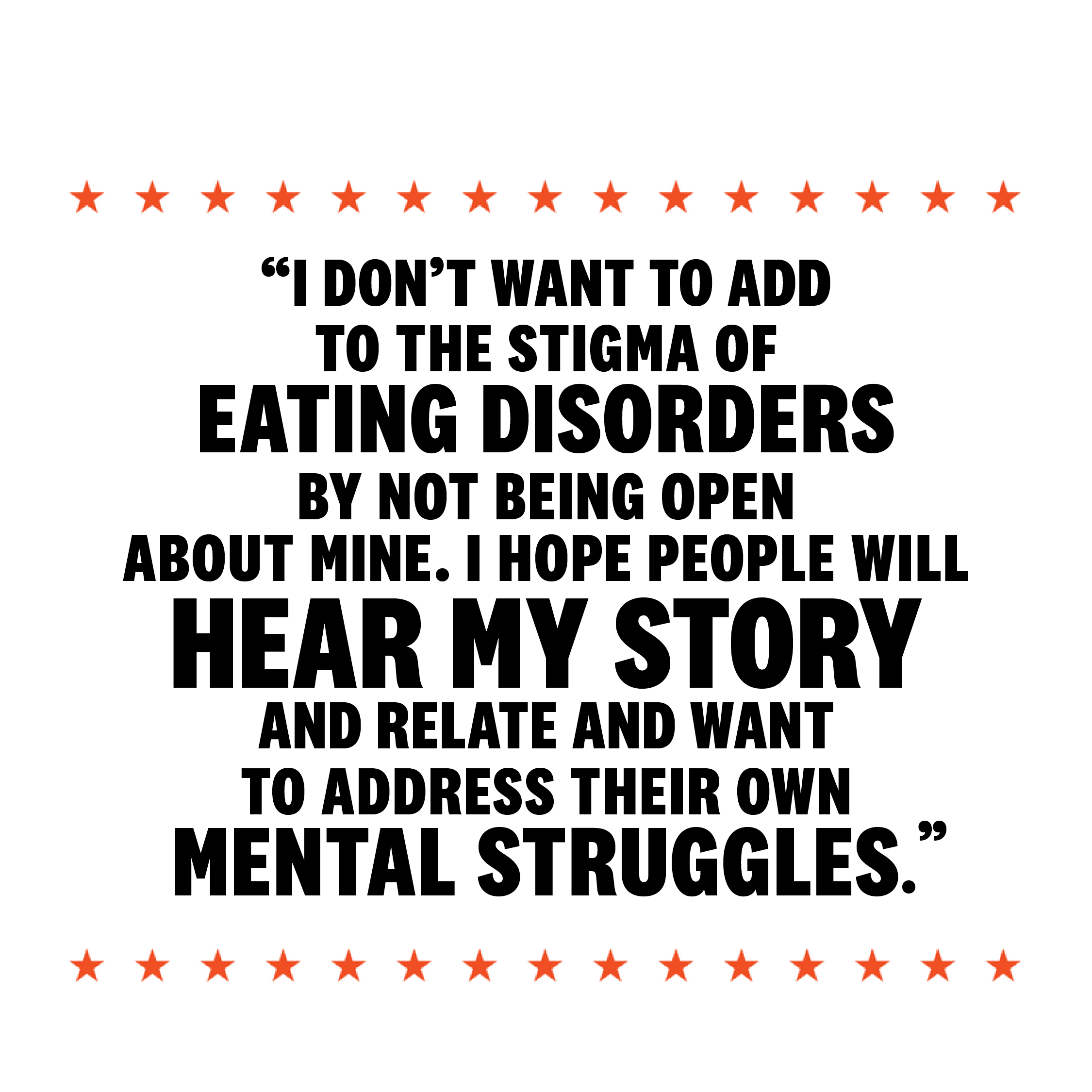Olympian Alice Merryweather Says Anorexia Treatment Helped Her Learn To Enjoy Everyday Life Again
I’ve been skiing since I was 4 years old and racing since I was 8. Throughout high school, I never felt insecure—I was confident in my body and proud of being strong. Once I achieved my goal of making the World Cup team, though, there was no huge next step to take, and I turned my focus and perfectionism inward. I became more conscious of what I looked like and what I was consuming.
The turning point was when the World Cup season was cut short in the spring of 2020. I’d fallen short of my goals, and on top of that, I was taking a heavier class load than usual at Dartmouth College, and my housing where I was going to be training fell through. It was a perfect storm of stress. I found a reprieve—and thought I was gaining control—through my diet. I stopped eating enough, but I would justify it with excuses like “I didn’t work out that hard today.”
My boyfriend, Sam, was the first person to mention the words eating disorder to me. He noticed I couldn’t manage my emotions. I also complained about being cold, even on hot summer days, which is a symptom. I brushed it aside. I was making the right athletic choice, I reasoned.

Then in September, at training camp, I wasn’t performing my best, and my coaches realized something was wrong. Though I had been diagnosed with anorexia nervosa, I was past the point of being able to overcome it on my own. Blood tests showed it was negatively affecting my body, and that’s when I realized it was not something I could snap out of. I entered a six-week, partial-hospitalization program where I relearned how to have a healthy relationship with food and attended therapy sessions.
I gained a lot of insight there, even about things that have nothing to do with food—including that I need to be proud of my personal victories rather than jumping to “What’s next?”
I’m happy I didn’t push to get back into the season and instead free-skied over the winter, falling back in love with the sport. I’m currently working with an outpatient team for recovery and training for the World Cup season—and, hopefully, the 2022 Olympics.
The fact that I can enjoy everyday life again is huge, because I lost that before. I’d have little glimpses of fun things with friends, but there were so few minutes of genuine joy. Now I’ll go outside and see a cool bird and it’ll give me a wave of happiness; that’s the kind of thing I’ve missed for so long as I was focused on getting to that next level. Now I celebrate these moments, no matter how mundane, because I know how far I’ve come.
—As told to Amy Wilkinson
Source: Read Full Article



